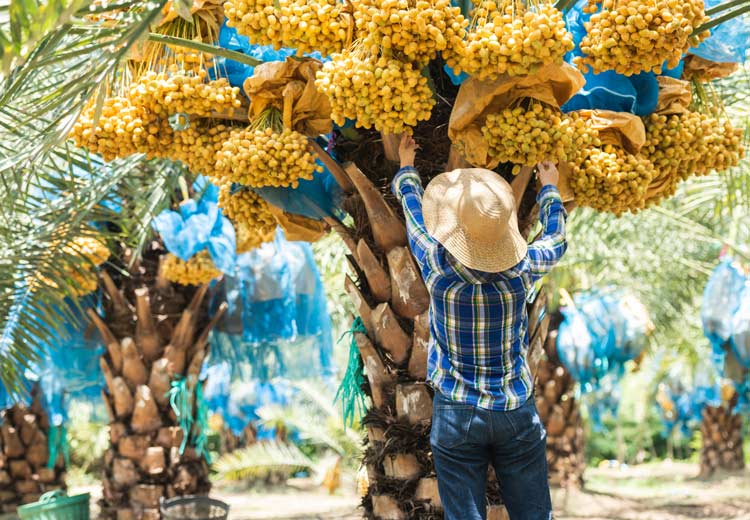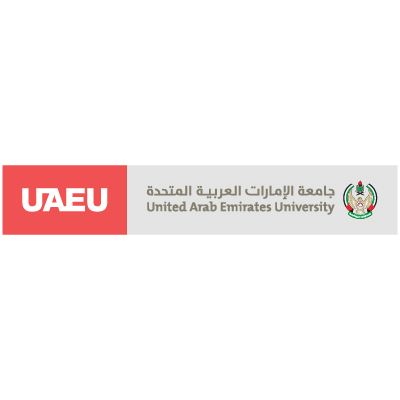Innovative drone technology pushes down date palm costs and increases labourer safety

Sponsored by

Sponsored by

New drone technology, developed as a collaboration between UAEU and Emirati agtech company Code Three Fourteen, will support the country’s date production and export industry
Researchers at United Arab Emirates University (UAEU) have found a safer and cheaper way to pollinate date palms. Using drones and an innovative and effective spray method, UAEU and its collaborators could pollinate the trees more than 70 times faster than when employing traditional methods.
There are more than 42 million date palms in the UAE, making the UAE one of the world’s top date exporters. To ensure a good yield, these trees need to be artificially pollinated by hand – something which can take up to half an hour per tree. Labourers also have to scale the trees, which can grow up to three storeys high.
“Thirty minutes is a long time if you have thousands of trees on your farm,” says Zienab Ahmed, an assistant professor in horticulture in the Department of Integrative Agriculture and part of the research team at UAEU. “This is a very important thing to think about – how can we make this pollination process go faster and be less risky for the labourers who have to climb the trees to pollinate them?”
The Department of Integrative Agriculture and the College of Agriculture and Veterinary Medicine collaborated with Emirati-led agtech start-up Code Three Fourteen to develop a drone that could pollinate 200 date palms in one minute.
The researchers developed a solution of water-suspended pollen grains, and each drone carried a 15-litre tank. “This solution was prepared to give an acceptable level of fruit setting and marketable yield with a minimum number of pollen grains,” says Mohammed Alyafei, an associate professor in the Department of Integrative Agriculture.
UAEU, which has a dedicated Date Palm Research and Development Unit, has its own agricultural research sites, including date palm fields, where its researchers can test new technologies and interventions.
During the two-year research project, the researchers ultimately found that using drones was more efficient and cheaper than hand pollination. Additionally, the fruit yield was high enough to make drones a commercial option for farmers. UAEU’s researchers recently published their findings in HortScience, a journal of the American Society for Horticultural Science.
The next step is to create a remote-controlled drone that could autonomously pollinate date palms in a field. Code Three Fourteen, which specialises in drone technology, will develop software that enables the drone to map an entire field, detect tree heights and assess the space between palms, as well as identify where the palm flowers are, Ahmed says.
“If we are successful in applying this technology to pollination, we can also use it to manage plantations,” says Mohammed Al-Mousa, general director of Code Three Fourteen Technology. For example, the red palm weevil is a serious threat to the date palm industry and the many livelihoods it supports. “Using a drone, we hope to detect which trees have been infected and spray insecticides” where they are needed.
Moreover, dates are not the only crops that require hand pollination, and Ahmed says they are planning to investigate other applications for the drones and their spray method.
Find out more about the College of Agriculture and Veterinary Medicine at UAEU.